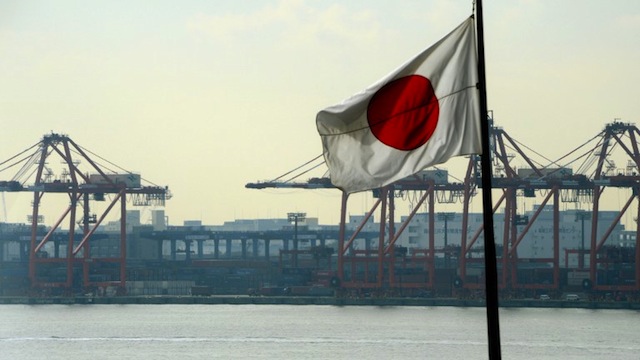SUMMARY
This is AI generated summarization, which may have errors. For context, always refer to the full article.

TOKYO, Japan – Japan’s first-quarter economic growth was stronger than first thought, revised data showed Monday, June 10 as Tokyo ushers in sweeping reforms and a mixed bag of monetary and fiscal policy.
The world’s third-largest economy grew at an annualized rate of 4.1%, up from an preliminary reading of 3.5%, and surging ahead of many other industrialized nations struggling to stoke their economies.
“The upward revision… confirmed that the Japanese economy remains on a firm recovery track,” said Hideki Matsumura, senior economist with the Japan Research Institute.
The annualised data, which shows the level of growth if the data were stretched over an entire year, comes as economists sift through recent economic figures for signs an economy-boosting plan by Prime Minister Shinzo Abe and his hand-picked team at the Bank of Japan was taking hold.
The policy prescription of big government spending and aggressive central bank easing to stoke Japan’s limp economy, dubbed “Abenomics”, has helped push the yen into a steep decline which benefits Japan’s exporters.
Also Monday, the Cabinet office said revised figures for real GDP showed Japan’s economy grew 1% in the first 3 months of the year, slightly better than preliminary 0.9%growth.
“We expect the economy will continue to grow for now but consumer spending may be dampened in the current quarter after a sizeable adjustment in the Nikkei index,” Matsumura said, referring to a recent drop in the Tokyo stock market.
Also Monday, official figures showed Japan posted a surplus on its current account for the third straight month in April, as the weaker yen helped boost the value of income from overseas investments.
Japan’s surplus doubled on-year to 750 billion yen ($7.6 billion) in its current account, the broadest measure of trade with the rest of the world, helping offset a widening trade deficit.
Japan’s import bills have soared in the wake of the Fukushima atomic crisis two years ago which saw Tokyo turn to pricey fossil-fuel alternatives after switching off the disaster-struck country’s nuclear reactors. – Rappler.com
Add a comment
How does this make you feel?


![[In This Economy] Can the PH become an upper-middle income country within this lifetime?](https://www.rappler.com/tachyon/2024/04/tl-ph-upper-income-country-04052024.jpg?resize=257%2C257&crop=295px%2C0px%2C720px%2C720px)


There are no comments yet. Add your comment to start the conversation.